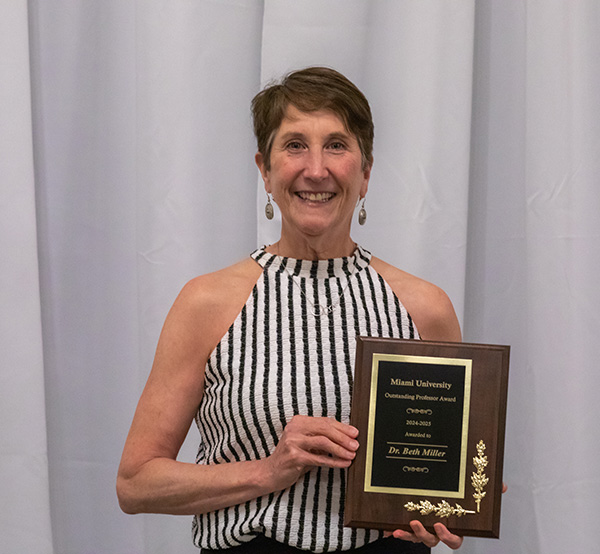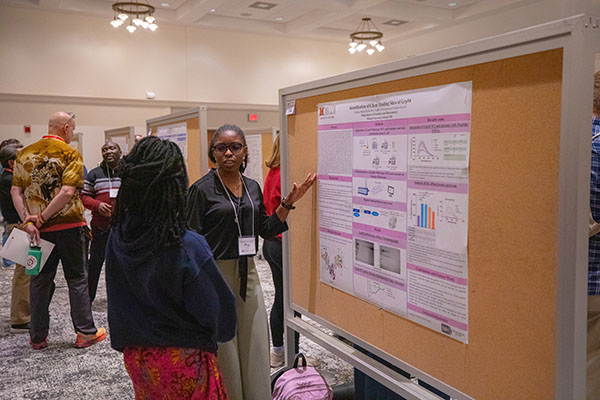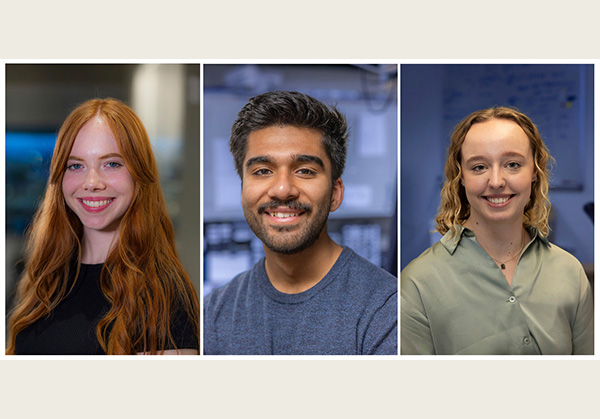
Associated Student Government announces 2025 Outstanding Professor Award, top 10 nominees
Beth Miller, associate professor of Kinesiology, Nutrition, and Health, received the 2025 award

Associated Student Government announces 2025 Outstanding Professor Award, top 10 nominees
Beth Miller, associate professor of Kinesiology, Nutrition, and Health, received the 2025 award

Announcing the CAS Dean’s Scholars for the 2025-2026 academic year
These 25 students have received expense stipends to work with faculty mentors on independent studies.

Graduate Research Forum 2024: Top presenter awards
Winners of the oral and poster presentations from the 16th annual forum announced

Three Miami University students selected as 2024 Goldwater Scholars
Miami University juniors Audrey Allen, Chanakya Pandya, and Cece Meinking were named Goldwater Scholars for 2024-2025. They are among 438 students nationwide to receive the scholarship

Senior Geology student assesses the chemistry and evolution of magma
Juliana Curtis ‘24 analyzes granite and the feldspar crystals within to assess the inner workings of ancient volcanoes.

Environmental Earth Science major inspires to showcase Miami history through Oxford’s natural trails
Ryan Sawyer ‘24, who is also co-majoring in Sustainability, created a geologic map and trail guide for Miami University’s natural areas

CAS announces the 2024 HASI Foundation Climate Solutions scholarship winners
Five seniors will also be presented with special mentorship and internship opportunities.
501 E. High Street
Oxford, OH 45056
1601 University Blvd.
Hamilton, OH 45011
4200 N. University Blvd.
Middletown, OH 45042
7847 VOA Park Dr.
(Corner of VOA Park Dr. and Cox Rd.)
West Chester, OH 45069
Chateau de Differdange
1, Impasse du Chateau, L-4524 Differdange
Grand Duchy of Luxembourg
217-222 MacMillan Hall
501 E. Spring St.
Oxford, OH 45056, USA